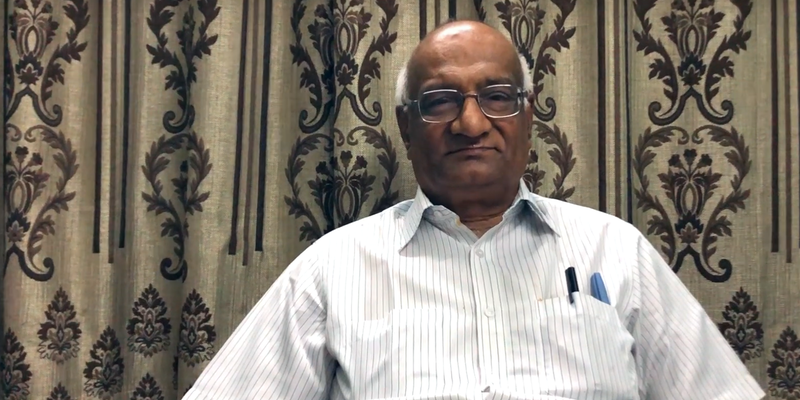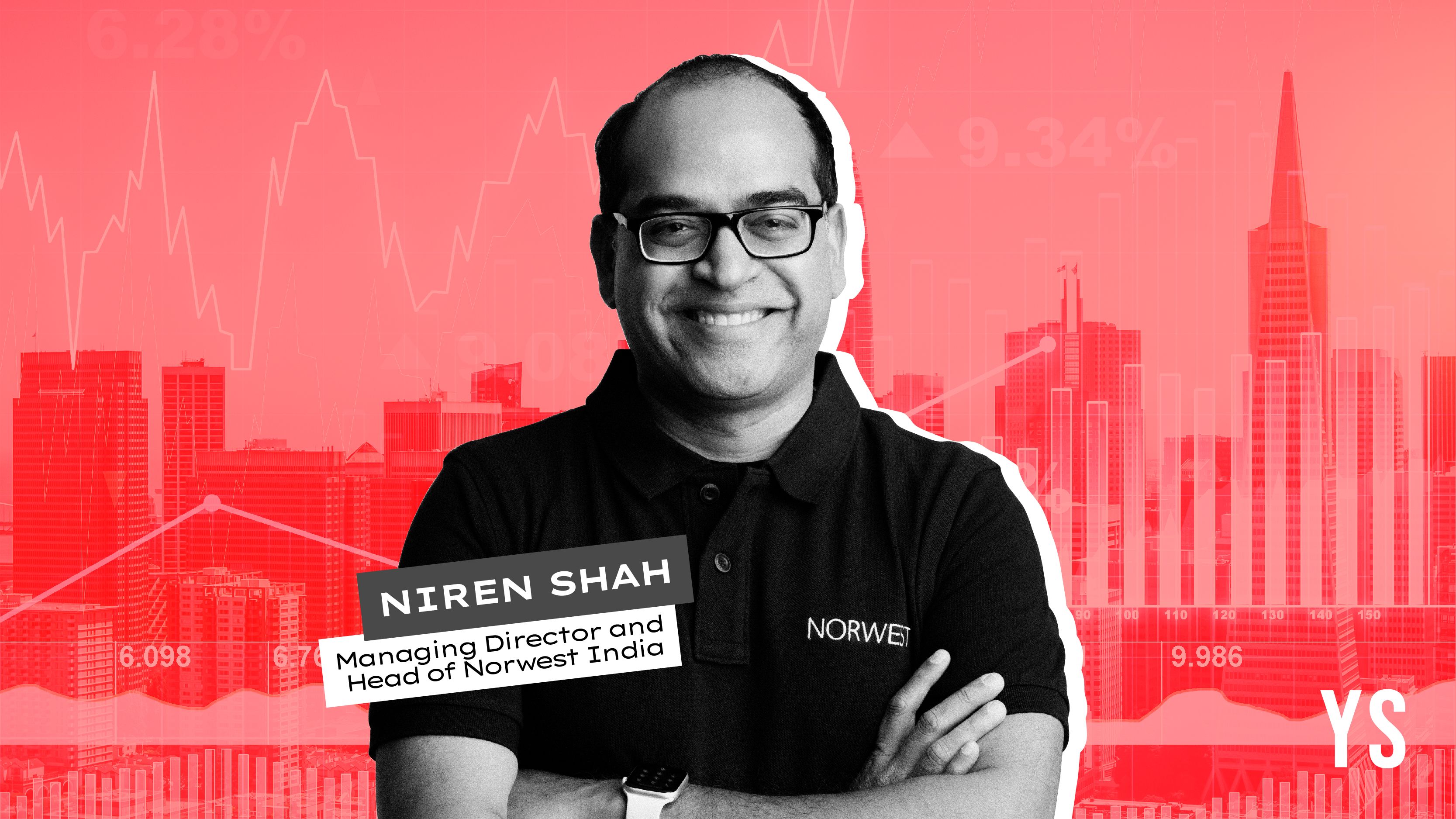Starting up at 63, this Hyderabad entrepreneur is on a pan-India mission to revive sick MSMEs
NP Desai's Growth Idea Lab not only finances sick units but also gives them access to a free analytics software to improve their operational efficiencies and make profits.
MSMEs are the backbone of the Indian economy, contributing 29 percent of the country’s GDP. The sector's potential is so great that Union Minister for MSME Nitin Gadkari has set a target to increase the contribution to 50 percent by 2025.
However, industrial sickness (where loss-making MSMEs are labelled 'sick units') is a major hurdle the economy has to overcome.
The MSME Ministry defines sick units as micro or small businesses whose borrower accounts remains as Non-Performing Asset (NPA) for three months or more.
It also defines sick units as enterprises which have faced erosion in their net worth due to accumulated losses (to the extent of 50 percent of its net worth during the previous accounting year).
There are several reasons for industrial sickness, such as lack of adequate finance, poor production processes, ineffective management, lack of skilled labour, and more.
For 68-year-old serial entrepreneur and author NP Desai, the mission is to address these issues by spreading awareness about them and hand-holding sick units till they are revived
In his 2019 book 'The Unexplored Goldmine', Desai describes the government's and the Reserve Bank of India's measures to revive sick MSMEs as "useless due to the lack of awareness of these schemes among entrepreneurs." He adds that bank employees at lower management levels are ignorant about the guidelines, and favour corporates in terms of lending.
Desai has also launched Hyderabad-based company Growth Idea Lab (GIL) in 2014 (when he was 63) to develop a free financial analytics platform to help sick units understand their finances better, optimise cash flow, and start the journey towards revival.

NP Desai, Founder, Growth Idea Lab and Author, The Unexplored Goldmine
"Profits can only come from operational efficiency. GIL's analytics looks at reviving sick units (the cure) as well as helping enterprises before they suffer too many losses (the prevention)," Desai says.
GIL's services are phased into three stages: crisis, stabilisation, and growth for each sick unit. After this, GIL looks at value unlocking or a clearly-defined exit route.
This micro approach places emphasis on understanding the needs of each sick units as unique, as opposed to macro approach that government policies follow.
Desai explains in his book that every time the government comes up with new policies for revival, they usually apply to the MSME sector on a macro scale. However, each sick unit faces unique issues, therefore the macro approach proves insufficient.
How Desai's journey began
After a degree in metallurgy, 23-year-old Desai joined his father's trading company in Hyderabad.
"We were involved in trading of welding electrodes and safety equipment. However, the company was not making profits," he says.
He closed the trading company and in 1992, used some newly-acquired land to start a metal fabrication unit named Desai Fabricator.
He recalls those years as difficult times when a lot of MSMEs were facing industrial sickness, including his own.
Desai took 21 years to build the company up to its peak -a time when it had 150 employees and was clocking Rs 5 crore annual turnover. "This was achieved on the back of a lot of advertising and getting working capital loans from Bank of Baroda," he explains.
However, things took a turn for the worse. In 2013, a Diwali puja turned disastrous when a lit lamp caused a fire at the fabrication facility.
"The fire burned through all the computer systems and destroyed all the data we had stored locally. The incident was too much to bear, so I thought of closing the company I worked so hard to build from scratch," Desai says.
His children, who were well-settled abroad, noticed that the value of the land where the fabrication unit was located had appreciated. They advised Desai to sell the land, pay off his creditors, and retire.
It took a year to sell everything, but Desai did not hang up his boots. He wanted to do something about the industrial sickness he had seen and personally experienced.
"With some of the money from the sale, I started Growth Idea Lab (GIL) in 2014 and began financing sick units in the form of debt funding," he says.
It did not work right away, so Desai lost some money. "Then, I decided to get into equity funding instead. But small businesses did not understand the difference. They were happy that money was coming in but could not manage the money well. I saw that most of them did not understand balance sheets well," he explains.
He asked them, "Where do profits come from?" and they answered "From our customers".
He told them profits don't come from the customer, but from operational efficiency.
Financial analytics for SMEs
Looking at the lack of awareness about financials among micro entrepreneurs, Desai decided to invest Rs 40 lakh, hire some youngsters, and create a free software called 'SME Analytics'. Targeted at small business owners, the software helps them analyse their financials and take better decisions.
The entrepreneurs enter their financial statements digitally on the GIL website. Its backend then calculates activity turnover, current ratio, receivables turnover ratio, and all the other critical financial ratios automatically and presents them in a easy-to-understand manner. Further, a detailed report is sent to the entrepreneur.
"This is how we enable predictive analysis, risk assessment, and facilitate value unlocking for businesses," he says.
With the report in hand, entrepreneurs can understand why certain expenses increased over a period of three years. All of this helps improve operating margins, which in turn helps entrepreneurs pay back loans faster.
"Further, understanding their own financials helps these small MSMEs make projections for the next year," Desai adds.
Despite the equity and debt funding not working out too well for Desai, he still continues to fund sick MSMEs and also arrange for short-term manpower and support for them.
GIL often deputes one full-time person in the initial phases to resolve the entrepreneur's doubts or dilemmas. Then, the entrepreneur is handheld in a way that he/she increases the cash flow by balancing activity. In two to three years, GIL aims to achieve stabilisation and growth for the entrepreneur.
Describing his own revenue model, Desai says, "When the sick unit is led towards growth, GIL aims for 10x growth in three to five years and the units' listing on the SME exchange. Its equity will then be encashed or bought back by the promoters, or by other investors. There can be many failures, but in cases of returns, we can make anywhere between 10x to 30x."
Desai claims he has currently reached out to 580 units for prevention and has already cured 15 sick units. "The target is to reach out to prevent one lakh units from becoming sick in two years. I am also going to target social entrepreneurs to help finance these sick units."
Attracting the right talent is a challenge for GIL, but Desai remains confident about his target.
Presently, GIL is working in Hyderabad, Delhi and Visakhapatnam, but the serial entrepreneur and author acknowledges that "the problem of sick units is everywhere."












